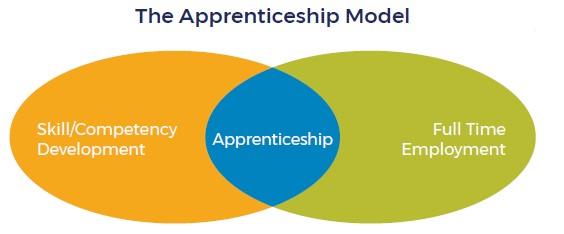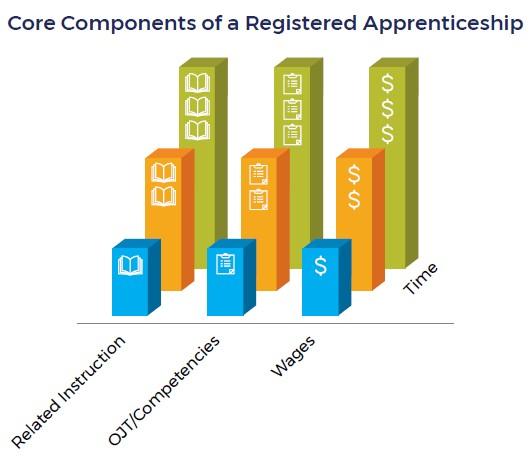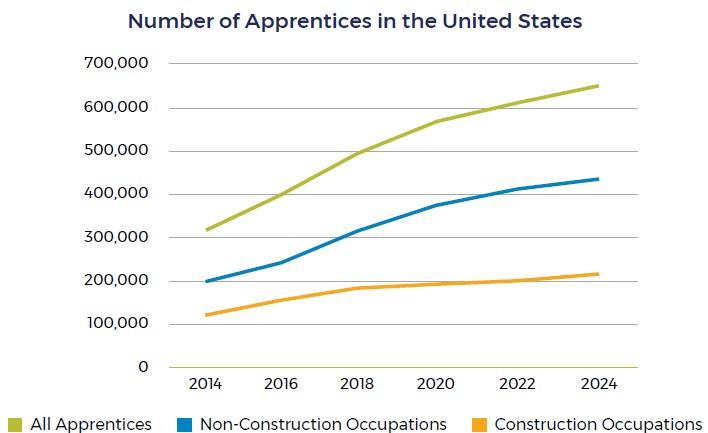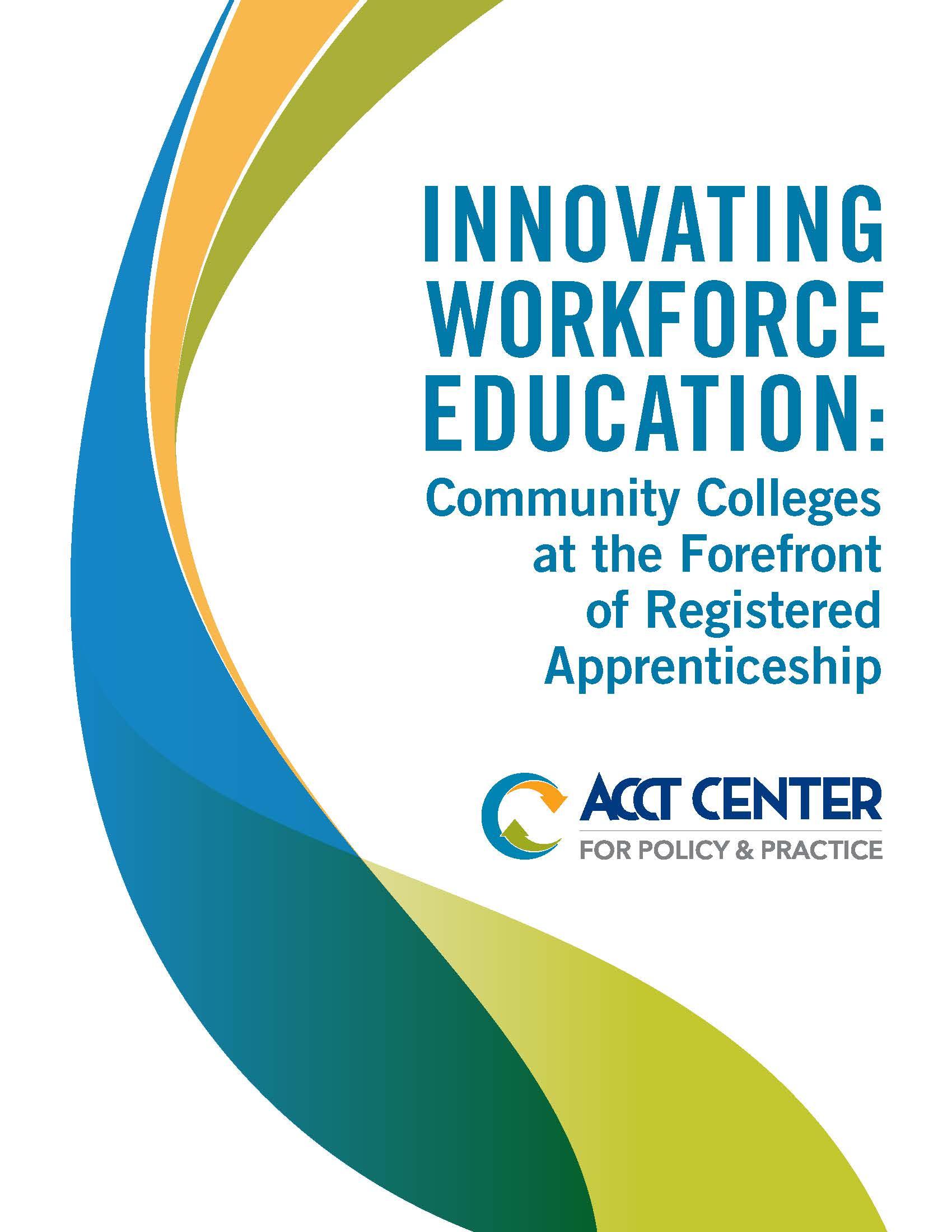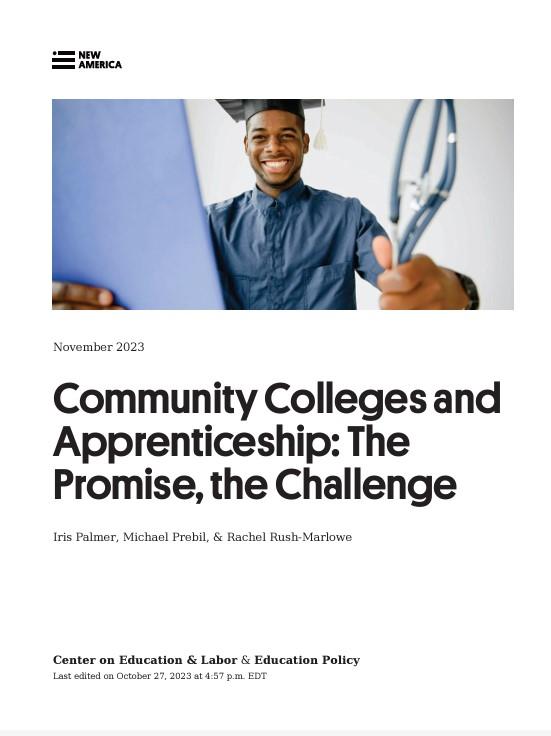Cohort 1: Scaling Apprenticeship at Community Colleges Project
The ACCT Center for Policy and Practice has officially launched the first cohort of our Scaling Apprenticeship at Community Colleges Project. Thanks to funding from Ascendium Education Group, and in partnership with New America and Job Forward, we are working with ten colleges from across the country to help them develop an operational framework and scale apprenticeship programs in non-traditional occupations.
We are thrilled to announce the ten colleges are:
1. Eastern West Virginia Community and Technical College—Moorefield, WV
2. Hocking College—Nelsonville, OH
3. Delaware County Community College—Media, PA
4. Moraine Valley Community College—Palos Hills, IL
5. Lake Land College—Mattoon, IL
6. Northwest Shoals Community College—Muscle Shoals, AL
7. River Parishes Community College—Gonzales, LA
8. South Louisiana Community College—Lafayette, LA
9. MiraCosta College—Oceanside, CA
10. Tillamook Bay Community College—Tillamook, OR
If your college is interested in participating but was not selected for the first cohort, we have good news: A second Scaling Apprenticeship cohort will launch next summer! Keep an eye out for an announcement from ACCT and submit your application then. Until then, keep an eye out for resources and lessons learned from cohort one!
What is the Scaling Apprenticeships Project?
Why is this important?
Over the last two decades, the educational requirements for family-sustaining jobs have increased while college tuition has continued to rise. Both trends are exacerbating income inequality and growing wealth disparities between Americans who complete postsecondary education and those who do not.
These trends contribute to skills shortages and hiring challenges in many industries, including health care, information technology, advanced manufacturing, renewable energy, and business services.
Americans need access to more affordable postsecondary education options that can connect them to good jobs and careers. The development of community colleges as registered apprenticeship program sponsors aligns skill development with the immediate needs of employers and creates new pathways to serve learners from low-income backgrounds, leading to socioeconomic mobility.
Apprenticeship is a highly effective education and employment strategy that can address many of the financial and practical challenges that prevent particularly low-income students from completing postsecondary education and transitioning successfully into the labor market. Apprenticeship is also a cost-effective talent solution for employers in many industries. Research shows apprenticeship can improve retention and innovation, and deliver a positive return on employers’ investment.
Despite these benefits, apprenticeship remains an underleveraged strategy in the United States, serving just over 630,000 apprentices each year and preparing them for a narrow set of occupations, mostly in construction and trades.
How is this different from other apprenticeship projects?
Community colleges are well positioned to scale registered apprenticeships into emerging and non-traditional occupations. However, based on New America’s findings, for community colleges to build sustainable registered apprenticeship programs, there is a need for a dramatically increased depth of understanding of the intricacies and nuances associated with the implementation and administration of registered apprenticeships. This depth of understanding is a critical necessity to ensure that programs are both scalable and sustainable.
One of the barriers to expanding apprenticeship into industries beyond construction is that high-growth fields like health care, business services, and information technology require industry-recognized credentials. Community colleges can play an important role in expanding apprenticeship into these fields because they are uniquely positioned to integrate the paid learning of apprenticeship with affordable, in-demand credentials. If we improve community colleges’ ability to serve as registered apprenticeship sponsors, we can create systemic pathways to high-quality careers for low-income students. By utilizing the apprenticeship model with the community college as sponsor, the college is collaboratively engaged with each employer as they project and plan for hiring.
Apprenticeship is a uniquely bipartisan education and training strategy that has seen consistent support across three very different administrations. In November 2024, ACCT participated in the Biden-Harris Administration’s “Classroom to Career” Summit which highlighted registered apprenticeship as a strategy for strengthening and expanding the American workforce and recognized community colleges as a critical part of America’s economic vision for the future.
Based on New America’s research findings, to take on the challenge of scaling apprenticeship into new fields, community colleges need opportunities for applied learning as well as the institutional capacity to build the functions that will support these programs in-house. The Association of Community College Trustees (ACCT) and New America will implement a comprehensive solution to support community colleges as they build their infrastructure and gain critical knowledge to create registered apprentice programs in new occupations, beyond the building and construction trades.
Scope of the Project
Led by ACCT and working in close partnership with New America, this project will implement a cohort model to provide content instruction about registered apprenticeship and guidance for each college to systematically and methodically design internal institutional apprenticeship management processes. The cohort model will also help community colleges in the project learn from and support each other as they work through each topic at their respective institutions.
In addition to the sequential topic and peer learning sessions for each cohort, two in-person convenings will provide opportunities for cohort members to connect, kick start, and plan their work as well as to work collaboratively toward completion of their registered apprenticeship Standards.
The project will provide tools, capacity building resources, and activities that deepen knowledge of the apprenticeship model and guide the design and implementation of internal institutional processes. The Institute for American Apprenticeships (IAA) will bring experience and expertise to the development of the tools and resources, and provide ongoing technical assistance to the community colleges throughout the project. IAA has developed and implemented registered apprenticeship programs to serve nearly 2,000 apprentices in 22 different nontraditional, apprenticeable occupations for more than 30 regional and national employers. IAA is also a reputable technical assistance provider throughout the U.S. and has experience providing technical assistance to community colleges.
The tools and resources to support community colleges developed for this project will include the following:
- Topic-specific planning guides for institutional process design.
- Action plan template for developing an institutional standard operating manual for sponsoring Registered Apprenticeship programs.
- Employer engagement guide focused on partnership development principles and processes within the context of apprenticeship.
- Trustee engagement planning guide to assist college apprenticeship planning teams with preparing to meet with trustees. This component will leverage the role of trustees in advancing the apprenticeship model as an integral, long-term, and sustainable student success strategy for the college and as a means of economic mobility for community college students.
Resources
Partners
Made Possible By:
Questions?
For questions about the Community College Apprenticeship project, please contact Steve Jurch, Associate Vice President for ACCT's Center for Policy and Practice, [email protected].
